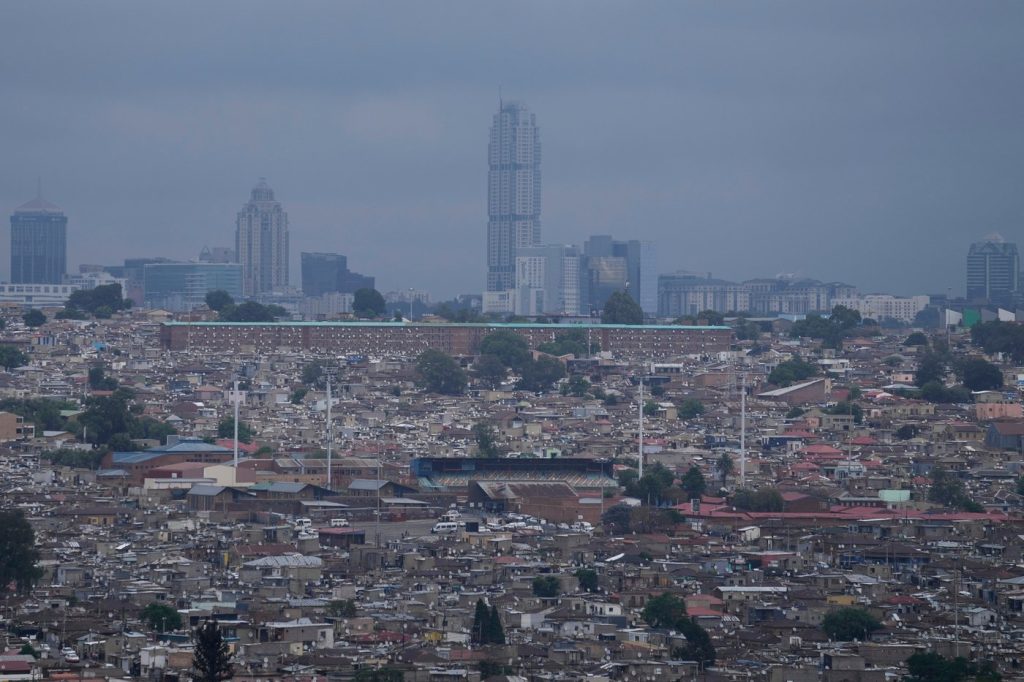Leaders and delegates from the world's wealthiest nations and prominent developing countries convened in Johannesburg, South Africa, for the Group of 20 (G20) summit. This notable event, marking Africa's inaugural G20 summit, faced significant overshadowing due to the boycott by U.S. President Donald Trump and his administration.
The gathering brought together representatives from 42 countries, excluding the United States, which is a founding member of the group set to take on the rotating presidency in Johannesburg. President Trump criticized South Africa's leadership of the G20 and opted out of attending, pointing to alleged discrimination against white farmers in the country. He stated that the claims of persecution against Afrikaners were “completely false,” as asserted by South African President Cyril Ramaphosa.
In a follow-up statement, Trump declared that no U.S. officials would participate in the summit, which subsequently dominated discussions, eclipsing the summit's agenda that centers on climate resilience, debt sustainability for poorer nations, and rising inequality. Earlier in the year, U.S. Secretary of State Marco Rubio and Treasury Secretary Scott Bessent both missed important preparatory meetings, fostering concerns regarding U.S. participation.
Despite the U.S. absence, Johannesburg has witnessed a flurry of preparatory activities, including extensive clean-up efforts and the planting of vibrant flowers along key routes, all adorned with eye-catching G20 banners. The hosts acknowledged that the absence of the U.S. raises uncertainties regarding the summit's overall success. However, South Africa’s foreign minister, Ronald Lamola, articulated a sentiment that this situation presents an opportunity to convey that global matters can progress without U.S. involvement, albeit with challenges.
Minister Lamola noted that full attendance from heads of state is rarely achieved in such gatherings, citing Xi Jinping of China, who has remained largely absent from international travel this year, with Premier Li Qiang representing him at the summit. Additionally, Russian President Vladimir Putin's non-attendance is tied to an arrest warrant issued against him by the International Criminal Court concerning the ongoing war in Ukraine. This warrant imposes an obligation on South Africa, a signatory of the Rome Statute, to detain Putin if he arrives in the country.
Moving forward, South Africa has utilized its G20 presidency as a platform to advocate for tackling the pressing issues faced by underprivileged nations, such as mitigating the devastating impacts of climate change. An independent panel recently reported that addressing these challenges would necessitate approximately $1 trillion annually by 2030 for effective climate resilience financing. The report urged both the International Monetary Fund and G20 member nations to take significant steps to re-finance the debts of poorer countries.
The African Union, a member of the G20, intends to represent African nations grappling with climate change and financial constraints, as highlighted by Mahmoud Ali Youssouf, chairperson of the African Union Commission. Brian Kagoro, managing director at Open Society Foundations, remarked that despite the regrettable U.S. boycott, what ultimately matters is the substantive progress Africa can accomplish during the summit, emphasizing the need for expedited global governance reform to amplify Africa's voice in global decision-making.
Some powerful nations, including France, Germany, and the United Kingdom, have expressed strong support for the summit, with their leaders expected to arrive in South Africa ahead of the two-day event. Numerous bilateral discussions are anticipated to occur on the summit's sidelines. Additionally, United Nations Secretary-General António Guterres confirmed his attendance, expressing his commitment to advancing vital reforms within the G20 framework to foster a sustainable development agenda, particularly aimed at benefiting Africa.











